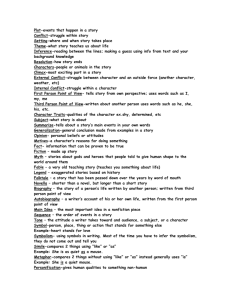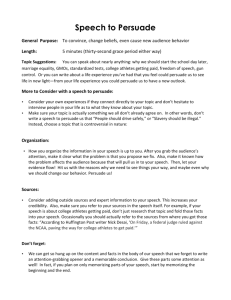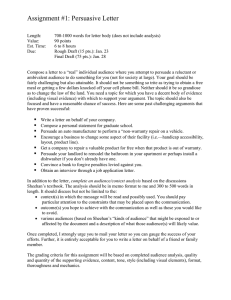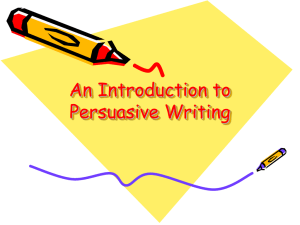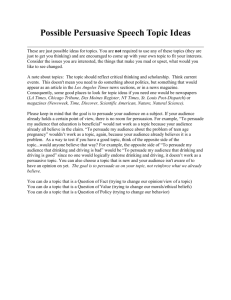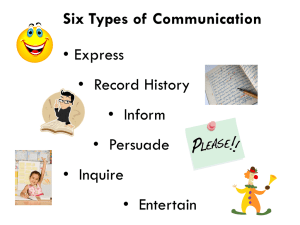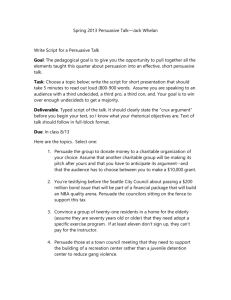The Seven Basic Principles of Effective Speaking
advertisement
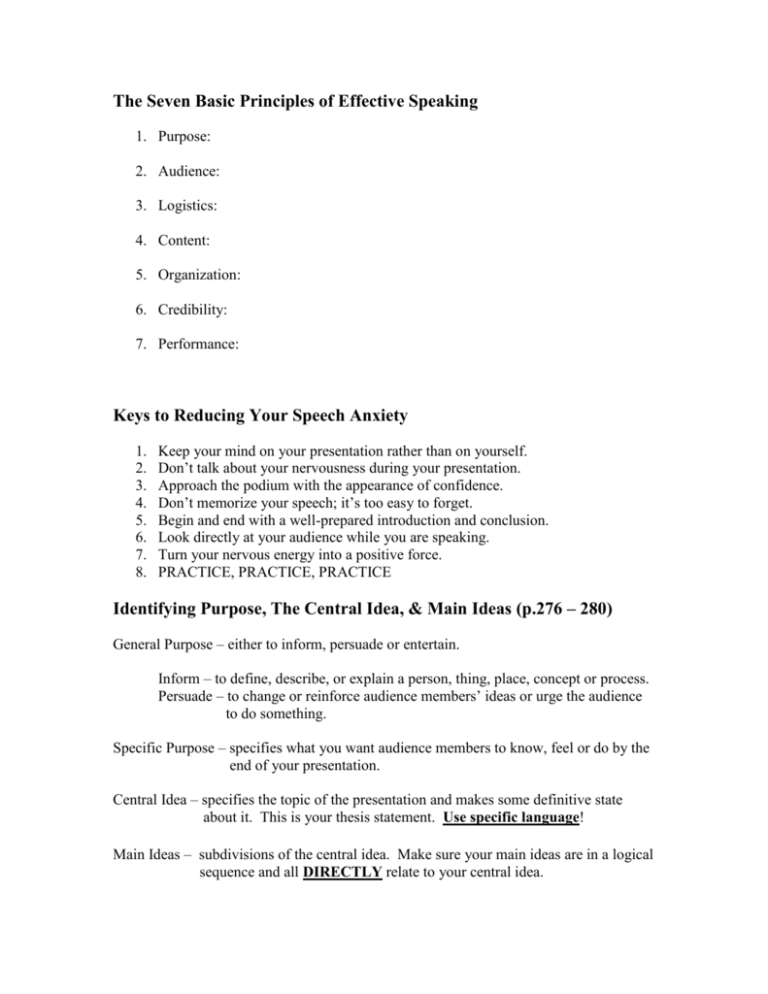
The Seven Basic Principles of Effective Speaking 1. Purpose: 2. Audience: 3. Logistics: 4. Content: 5. Organization: 6. Credibility: 7. Performance: Keys to Reducing Your Speech Anxiety 1. 2. 3. 4. 5. 6. 7. 8. Keep your mind on your presentation rather than on yourself. Don’t talk about your nervousness during your presentation. Approach the podium with the appearance of confidence. Don’t memorize your speech; it’s too easy to forget. Begin and end with a well-prepared introduction and conclusion. Look directly at your audience while you are speaking. Turn your nervous energy into a positive force. PRACTICE, PRACTICE, PRACTICE Identifying Purpose, The Central Idea, & Main Ideas (p.276 – 280) General Purpose – either to inform, persuade or entertain. Inform – to define, describe, or explain a person, thing, place, concept or process. Persuade – to change or reinforce audience members’ ideas or urge the audience to do something. Specific Purpose – specifies what you want audience members to know, feel or do by the end of your presentation. Central Idea – specifies the topic of the presentation and makes some definitive state about it. This is your thesis statement. Use specific language! Main Ideas – subdivisions of the central idea. Make sure your main ideas are in a logical sequence and all DIRECTLY relate to your central idea. Types of Supporting Material (p.286-291) 1. 2. 3. 4. 5. 6. 7. 8. Facts – Observations, experiences, or events accepted by the audience as true. Statistics – Systematically collected and numerically classified information. Testimony – Reported experiences or opinions of others. Definitions – Explanations or clarifications of a word’s or phrase’s meaning. Analogies – Comparisons of unfamiliar concepts or objects with familiar ones. Descriptions – Detailed mental images of people, concepts, or things. Examples – References to specific cases or illustrations. Stories – Real or fictitious accounts about something that has happened. “According to . . .” Where to Find Supporting Material (p.281-285) 1. You and people you know 2. The internet (Evaluation of Sources is extremely important) - Accountability - Accuracy - Objectivity - Date - Usability 3. The LIBRARY - Books - Periodicals - Full-Text databases - Newspapers - Reference resources - Government Documents - special services

